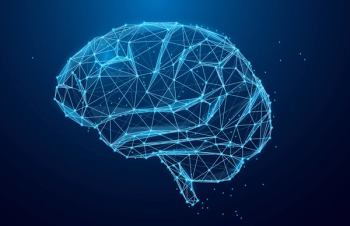
Complementary Effects of Combined Alternative Treatments on Social Anxiety Disorder
Treatments alter the neural processes underlying SAD symptoms.
A study found that psilocybin-assisted meditation interventions alter the neural processes that underlie symptoms of social anxiety disorder (SAD) and may have complementary effects.
In the study, a qualitative systematic literature review, researchers aimed to address the limited efficacy of current first-line treatment for SAD by identifying the potential mechanisms used in a combination of psilocybin and mindfulness treatment to adjust the anomalous neural activity underlying SAD. Researchers followed Preferred Reporting Items for Systematic Review and Meta-Analysis (PRISMA) guidelines in a literature search on PubMed using separate search strings for psilocybin treatment and mindfulness meditation.1
In the search string for psilocybin, researchers used the keywords “Psilocybin, LSD, Neural activation, brain imaging, nuclear, tomography, fMRI”; for the search string on mindfulness, they used “Mindfulness meditation, Neuronal Activity, Networks, Brain imaging, Tomography.” They selected 30 experimental studies that all had been published in a peer-reviewed journal, assessed the effects of psilocybin/lysergic acid diethylamide (LSD) or mindfulness meditation, and involved the performance of neuroimaging with fMRI.1
The researchers analyzed these studies for the effects of combined psilocybin treatment and mindfulness meditation on brain activation and connectivity, biased attention toward social threats, heightened self-focused attention, negative self-perception, brain regions involved in low perceived emotional control, and brain regions involved in post-event rumination.1
Their findings suggested a complementary effect of the combined treatments on the neurological mechanisms involved in SAD symptomatology: Psilocybin appears to cause acute disintegration of core neural networks, which are reintegrated in the post-acute phase, during which, the integration of mindfulness meditation exerts modulatory effects. The researchers suggested that this breaks the “vicious maintenance” of SAD by decreasing self-focused attention, while additional complementary effects of the treatments on frontoparietal control over the limbic cortex alter negative self-perception and emotional regulation.1
The researchers concluded that the complementary effects of psilocybin and mindfulness meditation interventions may help patients with SAD experience unbiased perception of social situations by improving their control over attention allocation and facilitating regulation of negative self-referential processing and emotional control. They concluded that “future studies should investigate whether psilocybin-assisted mindfulness-based intervention can provide therapeutic benefits to SAD patients who do not remit following conventional therapy.”1
Reference
1. Felsch CL, Kuypers KPC.
Newsletter
Receive trusted psychiatric news, expert analysis, and clinical insights — subscribe today to support your practice and your patients.







